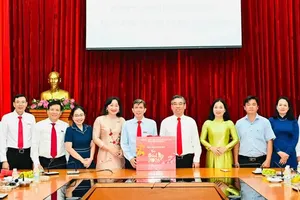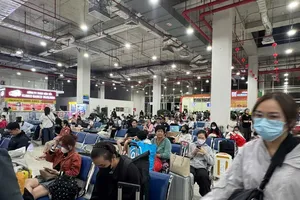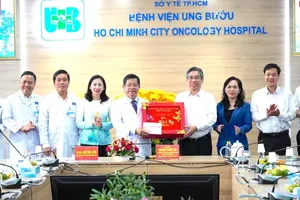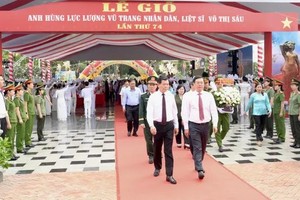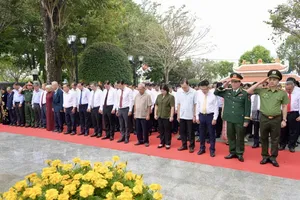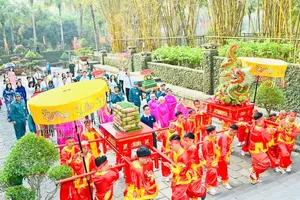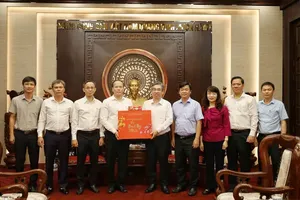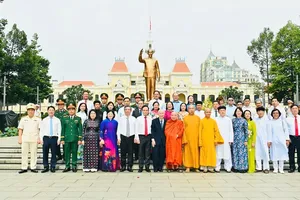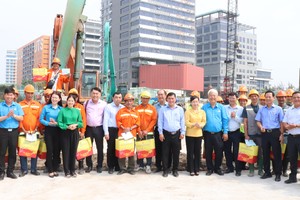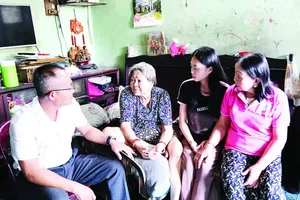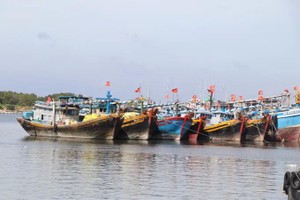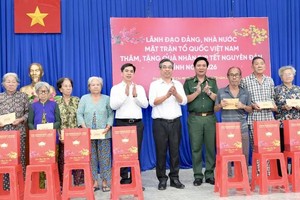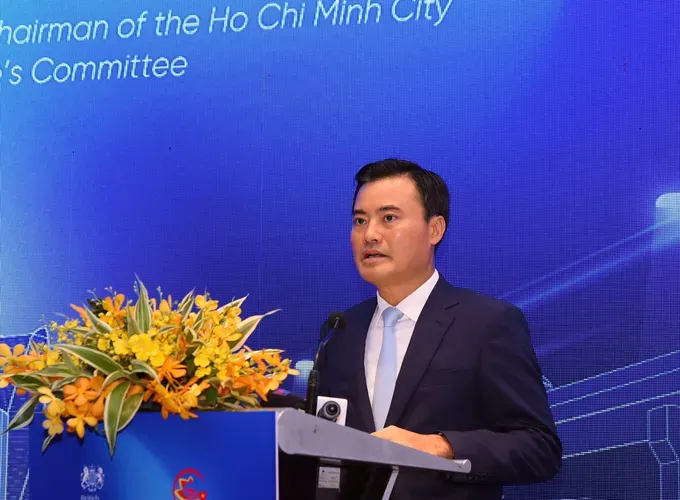
At a workshop held this morning, global experts shared insights on financing mechanisms, legal frameworks, and best-fit models tailored to Vietnam’s conditions, particularly for Ho Chi Minh City.
The event titled “Enhancing the Capacity for Implementing Public Transport Orientation (TOD)”, organized by the People’s Committee of Ho Chi Minh City, featured the signing of a Memorandum of Understanding (MoU) with the Foreign, Commonwealth and Development Office of the United Kingdom of Great Britain and Northern Ireland.
The workshop and signing ceremony were attended by key officials, including Deputy Chairman of the HCMC People's Committee Bui Xuan Cuong, MP and UK Trade Envoy Matt Western, UK Ambassador to Vietnam Iain Frew, and UK Consul General in HCMC Alexandra Smith.
In his opening remarks, Deputy Chairman Bui Xuan Cuong emphasized that the city has entered a transformative phase, following its recent merger with Binh Duong and Ba Ria–Vung Tau provinces. Now spanning more than 6,700 km² and home to nearly 14 million people, Ho Chi Minh City aspires to position itself as a regional megacity and a hub for finance, trade, logistics, high technology, and coastal tourism, while also serving as a vital node in national and regional innovation networks.
With the advantage of integrating all five modes of transport such as road, rail, air, sea, and waterways, the city is steadily consolidating its role as an inter-regional and international gateway.
Within its long-term planning, the TOD model is identified as a strategic pillar for building a smart and sustainable city. By 2035, Ho Chi Minh City targets the completion of 355 km of urban railway and the parallel development of TOD zones in line with Resolution 38, aiming to alleviate traffic congestion, boost commerce, and improve the quality of life for its residents.
Ho Chi Minh City has outlined a three-phase roadmap for implementing transit-oriented development. From 2025 to 2030, the focus will be on Metro Lines 1 and 2 as well as Ring Road 3. The period from 2030 to 2045 will see the expansion of Metro Lines 3, 4, and 6, along with extensions to Binh Duong and Vung Tau. After 2045, the city plans to complete a fully connected metro network with Lines 5, 7, 8, 9, and 10.
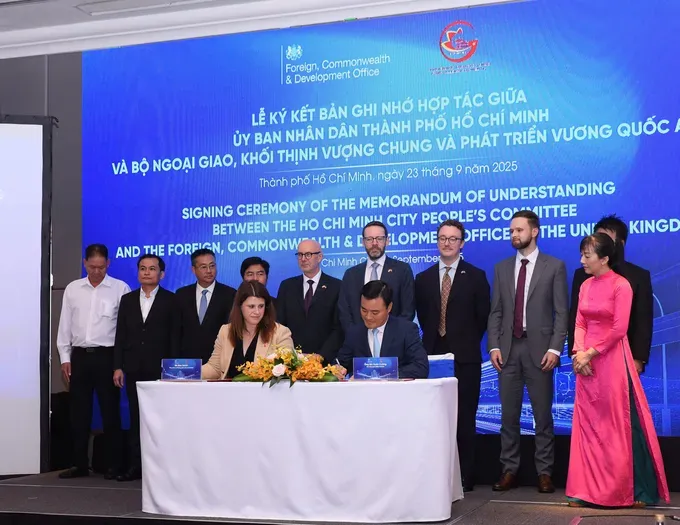
In the first five years, the city has selected 11 pilot sites around metro stations and Ring Road 3, including the C30 area, Phuoc Long Station, the 29-hectare Long Binh area, and Tan Kien Station. This selective pilot approach is considered appropriate, enabling the gradual formation of an urban ecosystem closely linked with modern public transport.
At the same time, Ho Chi Minh City is developing land-use plans around metro stations, organizing land auctions, and inviting investment to effectively leverage land value for reinvestment in transport infrastructure.
According to the city’s Urban Development Management Board, large-scale TOD implementation will require a synchronized set of measures including detailed planning, timely land clearance, transparent financial mechanisms based on land value sharing, private investment through public–private partnerships (PPP), and provisions for social housing within TOD zones. In particular, the establishment of a dedicated coordinating agency is deemed essential to avoid overlaps and ensure implementation efficiency.
At the workshop, many international experts particularly from the United Kingdom shared experiences in TOD development, including financing mechanisms, legal frameworks, and model selection tailored to Vietnam’s conditions.
Ho Chi Minh City leaders expressed confidence that cooperation with the United Kingdom and other international partners will open up significant opportunities for infrastructure development, enabling the city to realize its super-connectivity vision, position itself as a regional economic and financial hub, and enhance quality of life for its residents.
